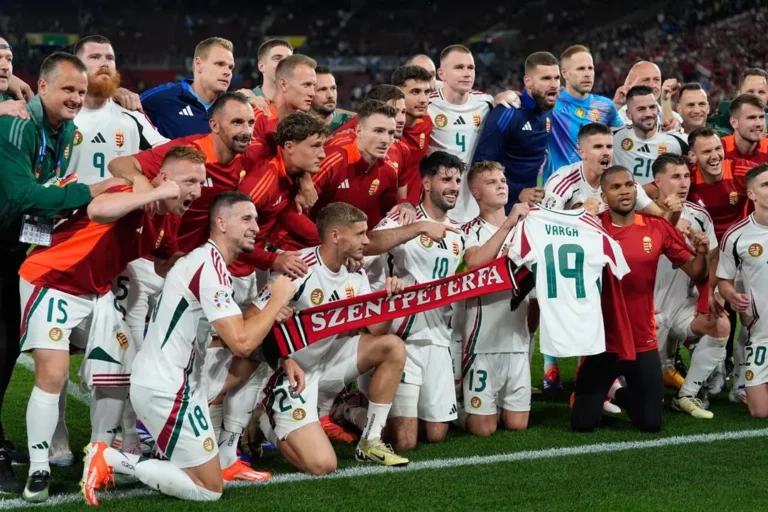football
Hungarian Liverpool player Szoboszlai mourns late teammate Jota: “Words cannot describe how heartbroken and devastated we are”

OFFICIAL: Hungarian international Milos Kerkez becomes a Liverpool player

Breaking: Liverpool signs Hungarian goalkeeper in club record deal

Hungary suffers sobering 2–0 defeat against understrength Sweden in Budapest friendly

Hungarian left-back Kerkez signs with Liverpool

Tragedy on the pitch: 18-year-old Hungarian footballer dies after 50-minute wait for ambulance

Hungary set for international matches against Sweden and Azerbaijan

Hungarian international defender edging closer to joining Liverpool

The science behind penalty kicks: how to score more goals

VAR in football: revolutionizing the game or ruining the spirit?

Anti-Hungarian banner displayed by Slovan supporters at the match against DAC

Football ultras beat Hungarians in Romania because they used their language with each other!

Unprecedented: Hungarian footballer becomes interim coach of RB Leipzig

Puskás was born 98 years ago: the legendary Hungarian who changed football forever

Liverpool’s Hungarian star footballer Szoboszlai gets married – PHOTO

Nations League: Hungary to resume life in second tier – highlights

Important: Traffic and public transport changes in Budapest for Hungary vs. Türkiye match at Puskás Aréna today

Hungary’s key matches in FIFA 2026 Qualifiers: high-stakes betting analysis





 ZH
ZH IT
IT DE
DE HR
HR NL
NL FR
FR JA
JA RO
RO RU
RU ES
ES TR
TR
